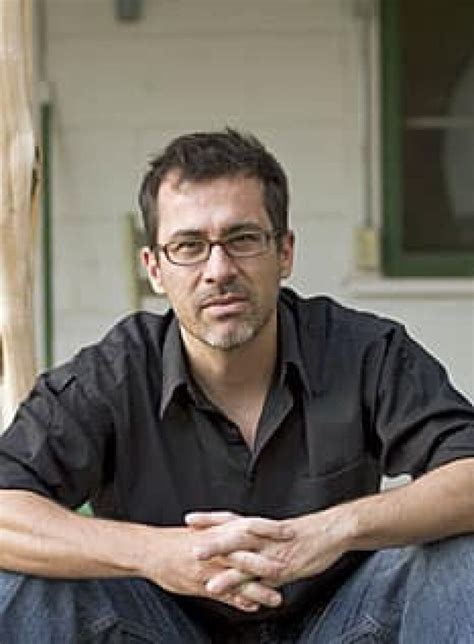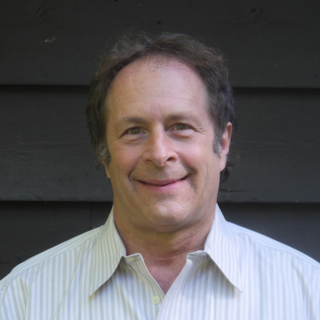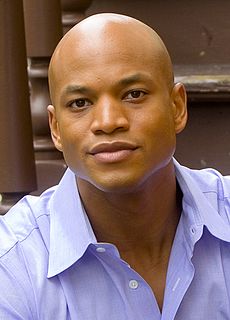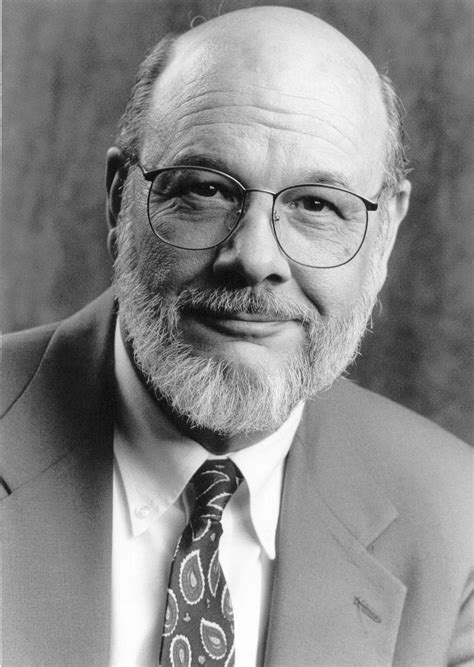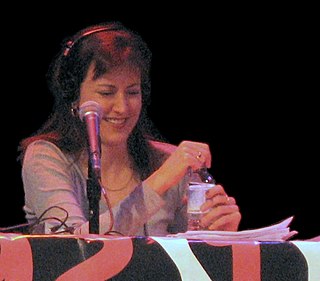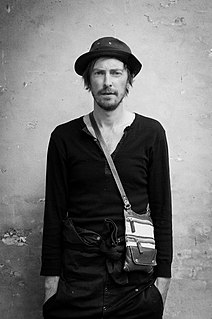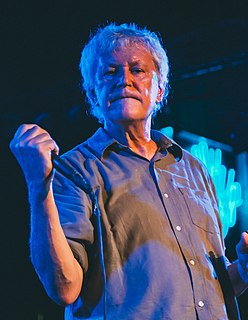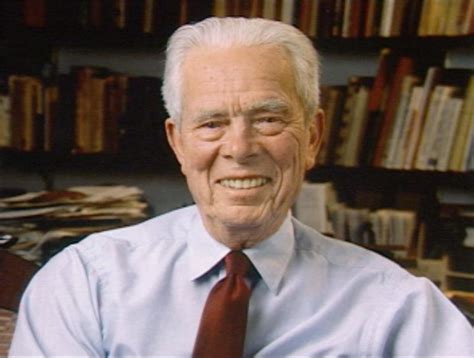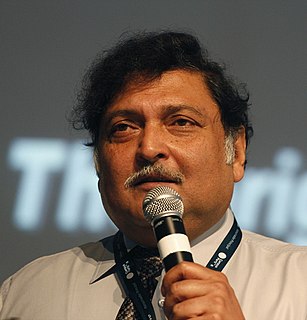Top 463 Environments Quotes & Sayings - Page 8
Explore popular Environments quotes.
Last updated on April 15, 2025.
We have those new environments [during Kung Fu Panda 3] that give a scale to the movie, that are the spirit realm and the panda village. The spirit realm, having no gravity, having this massive space, allowed us to do huge action shots. All that we just couldn't do before. We just couldn't get the scale, we'd have to cheat them. This time we found ourselves more free.
Natural selection is just three factors - over-production, variation, and inheritance combined to produce adaptation to changing local environments. It's not a principle or progress; it's just a principle of local adaptation. You don't make better creatures in any cosmic sense; you make creatures that are better suited to the changing climates of their local habitats.
It is probably true quite generally that in the history of human thinking the most fruitful developments frequently take place at those points where two different lines of thought meet. These lines may have their roots in quite different parts of human nature, in different times or different cultural environments or different religious traditions: hence if they actually meet, that is, if they are at least so much related to each other that a real interaction can take place, then one may hope that new and interesting developments may follow.
So this is my attempt to give a preliminary - probably far too crude - account of how philosophy by showing can really teach us. The attempts we make to work through problems by reasoning always presuppose starting points, and even the most self-critical philosophers adopt some of those starting points simply by picking them up from the social environments in which they grow up.
Let's set the existence-of-God issue aside for a later volume, and just stipulate that in some way, self-replicating organisms came into existence on this planet and immediately began trying to get rid of each other, either by spamming their environments with rough copies of themselves, or by more direct means which hardly need to be belabored. Most of them failed, and their genetic legacy was erased from the universe forever, but a few found some way to survive and to propagate.
The basic formulation, or bare-bones mechanics, of natural selection is a disarmingly simple argument, based on three undeniable facts (overproduction of offspring, variation, and heritability) and one syllogistic inference (natural selection, or the claim that organisms enjoying differential reproductive success will, on average, be those variants that are fortuitously better adapted to changing local environments, and that these variants will then pass their favored traits to offspring by inheritance).
The solution for rising up kids in the income distributionlies is in creating better childhood environments for kids growing up, especially in low income families. And so what means such things like schools, the quality of neighborhoods. If you think about what's gone on in Baltimore, it's a place of tremendous concentrated poverty. People aren't really seeing a path forward and I think revitalizing places like that can have a huge impact, even in the face of globalization and changes in technology.
Darwin's principle of natural selection leads to the prediction that the proper way to analyze any evolutionary development is to see the new features as adaptive to environments. And that's a perfectly good principle. The problem is that there are many evolutionary biologists who view everything that happens in evolution as directly evolved for adaptive benefit. And that just doesn't work. Whenever you build a structure for adaptive reasons, the structure is going to exhibit properties that have nothing to do with adaptation. They're just side consequences.
Those who become hyperpolyglots are those who meet two criteria. One, they are exposed to language material. Two, they undertake learning languages as a mission as well as acquiring the personal identity as a language learner.I describe the "neural tribe theory" of hyperpolyglots, arguing that they possess an atypical neurology that is selected by some environments and not others; presumably, there have always been humans walking around with that set of neurological traits or factors, only some of whom actually use those things for languages.
Throughout his last half-dozen books, for example, Arthur Koestler has been conducting a campaign against his own misunderstanding of Darwinism. He hopes to find some ordering force, constraining evolution to certain directions and overriding the influence of natural selection. [...] Darwinism is not the theory of capricious change that Koestler imagines. Random variation may be the raw material of change, but natural selection builds good design by rejecting most variants while accepting and accumulating the few that improve adaptation to local environments.
Academic environments are generally characterised by the presence of peole who claim to understand more than in fact they do. Linguistic Philosophy has produced a great revolution, generating people who claim not to understand when in fact they do. Some achieve great virtuosity at it. Any beginner in philosophy can manage not to understand, say, Hegel, but I have heard people who were so advanced that they knew how not to understand writers of such limpid clarity as Bertrand Russell or A.J. Ayer.
This generation has altered the composition of the atmosphere on a global scale through radioactive materials and a steady increase in carbon dioxide from the burning of fossil fuels. Entire regional airsheds, crop plant environments, and river basins are heavy with noxious materials. Motor vehicles and home heating plants, municipal dumps and factories continually hurl pollutants into the air we breathe. Each day almost 50,000 tons of unpleasant, and sometimes poisonous, sulfur dioxide are added to the atmosphere, and our automobiles produce almost 300,000 tons of other pollutants.
I'm always amazed to hear my more conservative colleagues talking about how they care about life. They're pro-life, but when it comes down to safe work environments that allow for unions, being able to pay for child care, having family leave - they don't care about any of that. That's where I argue that they're not pro-life, they're pro-birth.
I agree completely that nothing is more important for transgender people than to have access to excellent health care in trans-affirmative environments, to have the legal and institutional freedom to pursue their own lives as they wish, and to have their freedom and desire affirmed by the rest of the world. This will happen only when transphobia is overcome at the level of individual attitudes and prejudices and in larger institutions of education, law, health care, and kinship.
Students of the psychedelic realm know that one's expectations are a powerful determinant of the direction, content, and outcome of the experience. So, we should say at the outset that the experiences recounted here were preceded by careful preparation, where the trip was presented as a learning experience and a process of self-discovery. They all took place in safe, supportive environments. They generally did not fit the stereotypical model of teenagers dropping acid at a rock concert, looking for awesome visuals and good vibes.
All media work us over completely. They are so pervasive in their personal, political, economic, aesthetic, psychological, moral, ethical, and social consequences that they leave no part of us untouched, unaffected, unaltered. The medium is the message. Any understanding of social and cultural change is impossible without a knowledge of the way media work as environments. All media are extensions of some human faculty - psychic or physical.
Over time you learn to know a bit more about yourself - you develop a certain amount of self-insight and self-awareness, and you know what you can absorb, and what you cannot; what gets to you and what doesn't. And I observe a lot. I see a lot around me. And over time you also get to understand the nature of man and the environments you are dealing with, and you can't always allow emotions and temper to flare up because you're displeased with something, or you want to change it.
Our world is not an optimal place, fine tuned by omnipotent forces of selection. It is a quirky mass of imperfections, working well enough (often admirably); a jury-rigged set of adaptations built of curious parts made available by past histories in different contexts. A world optimally adapted to current environments is a world without history, and a world without history might have been created as we find it. History matters; it confounds perfection and proves that current life transformed its own past.
Some time ago we discovered the carbon cycle - a long-term set of chemical reactions that govern climates based on how much carbon is free in the atmosphere. At that point, it became clear that humans were affecting our environments far more profoundly than we realized. By releasing so much carbon and greenhouse gas into the environment, we're making long-term changes to every aspect of the natural world.
The lives of individuals of the human race form a constant plot, in which every attempt to isolate one piece of living that has a meaning separate from the rest-for example, the meeting of two people, which will become decisive for both-must bear in mind that each of the two brings with himself a texture of events, environments, other people, and that from the meeting, in turn, other stories will be derived which will break off from their common story.
People are more likely to search for specific books in which they are actively interested and that justify all of that effort of reading them. Electronic images and sounds, however, thrust themselves into people's environments, and the messages are received with little effort. In a sense, people must go after print messages, but electronic messages reach out and touch people. People will expose themselves to information in electronic media that they would never bother to read about in a book.
Do you think that we're products of our environments? I think so, or maybe products of our expectations. Others' expectations of us or our expectations. I mean others' expectations that you take on as your own. I realize how difficult it is to seperate the two. The expectations that others place on us help us form our expectations of ourselves.
I, and all the complex things around me, exist only because many things were assembled in a very precise way. The 'emergent' properties are not magical. They are really there and eventually they may start re-arranging the environments that generated them. But they don't exist 'in' the bits and pieces that made them; they emerge from the arrangement of those bits and pieces in very precise ways. And that is also true of the emergent entities known as "you" and "me".
One of my favorite things about the Kung Fu Panda 3 is the look of it. We never go for realism. I think a lot of time when people go for 3D that's the mistake. Because we're never going for full realism - for computer generated live action films like Avatar the goal is realism, to make the audience feel like they are seeing something that is real. Lord of the Rings had character design and environments to make it look real, whereas we aren't going for that, we are going for something that is theatrically, viscerally, and emotionally real.
Also, having grown up in England, you walk around London, you're passing relics that are a thousand years old - the wall of London is a thousand years old. You don't talk about it, it's part of your everyday life. The idea that people are in these environments and talking about the past and what happened, it's irrelevant. It's all about living and in this world it was about surviving.
For me it's the hypnotic simplistic reduction of hooks into some form of prayer wheel or something. I really appreciate people who can work in those quiet environments making really precious latticework like lace in a weaving but, for me, I like it a bit more hairy and like psychedelic Peruvian knits or something! You know what I mean? I go into fabric analogies, you know.
I realized why I can cook for different environments. Because of everything I've gone through growing up. Why can I cook for a Hollywood event without blinking an eye? Because I cooked at the Beverly Hilton and because I moved to Villa Park. Why can I cook for kids on Hollywood Boulevard at night? Because I went through it.
I believe faith is a human universal. We are endowed at birth with nascent capacities for faith. How these capacities are activated and grow depends to a large extent on how we are welcomed into the world and what kinds of environments we grow in. Faith is interactive and social; it requires community, language, ritual and nurture. Faith is also shaped by initiatives from beyond us and other people, initiatives of spirit or grace. How these latter initiatives are recognized and imaged, or unperceived and ignored, powerfully affects the shape of faith in our lives.
After having produced aquatic animals of all ranks and having caused extensive variations in them by the different environments provided by the waters, nature led them little by little to the habit of living in the air, first by the water's edge and afterwards on all the dry parts of the globe. These animals have in course of time been profoundly altered by such novel conditions; which so greatly influenced their habits and organs that the regular gradation which they should have exhibited in complexity of organisation is often scarcely recognisable.
I have three boys. And I wanted to make sure it connected with them and then those guys who grew up like me, in environments like me.And then I knew something about science that your New York Times reader would be interested in. So I was thinking about it in multiple ways: I'll connect with the people who grew up like me first, and then the New York Times reader will be interested in the science because it's so good and they want to be "in the know."
Based on the overwhelming array of luxury products manufacturers have recently introduced, homeowners want anything that makes their lives more comfortable at home. Whether it involves heating/warming accessories or spa-like home environments, it's part of the 'cocooning' phenomena that has resurfaced. People are spending more time at home and they want to be comfortable. They want to use their home to its full potential, not just as a place to eat and sleep between workdays.
I designed New York boutique myself, the same as I designed the previous retail spaces in Copenhagen and Olso. The inspiration for the interior is similar to those, as well. Of course, I also build sets for my shows and other personal projects, so I think about how to design "space" often. I also do a lot of installations for other companies, have done pop-up projects, so transforming environments the Vibskov way is always a fun challenge.
I'm being given a little bit of credit now as being a viable collage artist, which some people think is ridiculous. Like this guy who said, "Wait a minute: You had an art show where you just cut out pictures and then glued them back together?" And I said, "Yeah, that's pretty much what it is." There's more to it than that. It's about having the eye for detail, moving things from one environment and reassembling them into new environments....Everyone can do it, but not everyone can do it well.
The gap between the rich and poor is growing among and within most nations. The political and social effects of unequal location of energy and other mineral resources are acute. Population numbers continue to climb. The global environment shows signs of widespread deterioration. Both natural and social environments are increasingly vulnerable to catastrophic disturbances... There may, however, be a cheering challenge in the possibility that out of its struggle with these realities the human race may move a bit nearer to behaving as if it were indeed one family.
Many quantum physics are realizing or hypothesizing that consciousness is not a byproduct of evolution as has been suggested. Or for that matter, an expression of our brains, although it expresses itself through our brains. But consciousness is the common ground of existence that ultimately differentiates into space, time, energy, information and matter. And the same consciousness is responsible for our thoughts, for our emotions and feelings, for our behaviors, for our personal relationships, for our social interactions, for the environments that we find ourselves in, and for our biology.
There was a time in my acting career, where I was trying to figure out if acting was the thing to do. You know? I was always on this journey of trying to learn more about humanity and people - using the characters and situations as guideposts. I could switch up and do another job as long as I'm continuing that same search and that same journey of revealing my connection to humanity and the universe. And directing gives me the opportunity to explore ALL these different lives and their connection to their environments and the people. And I get to connect to the wires of the universe.
My wish is to help design the future of learning by supporting children all over the world to tap into their innate sense of wonder and work together. Help me build the School in the Cloud, a learning lab in India, where children can embark on intellectual adventures by engaging and connecting with information and mentoring online. I also invite you, wherever you are, to create your own miniature child-driven learning environments and share your discoveries.
Change masters are - literally - the right people in the right place at the right time. The right people are the ones with the ideas that move beyond the organization's established practice, ideas they can form into visions. The right places are the integrative environments that support innovation, encourage the building of coalitions and teams to support and implement visions. The right times are those moments in the flow of organizational history when it is possible to reconstruct reality on the basis on accumulated innovations to shape a more productive and successful future.
But nature - that is, biological evolution - has not fitted man to any specific environment. On the contrary, ... he has a rather crude survival kit; and yet -this is the paradox of the human condition - one that fits him to all environments. Among the multitude of animals which scamper, fly, burrow and swim around us, man is the only one who is not locked into his environment. His imagination, his reason, his emotional subtlety and toughness, make it possible for him not to accept the environment but to change it.
If zoos are like arks, then rare animals are like passengers on a voyage of the damned, never to find a port that will let them dock or a land in which they can live in peace. The real solution, of course, is to preserve the wild nature that created these animals and has the power to sustain them. But if it is really true that we are inevitably moving towards a world in which mountain gorillas can survive only in zoos, then we must ask whether it is really better for them to live in artificial environments of our design than not to be born at all.
The films that I loved growing up were the science fiction films from the late seventies and early eighties [films], which were more about the people and how they are affected by the environments that they are in. Whether they are sort of futuristic or alien of whatever they are; that was the science fiction that I loved. So that is what we tried to make, the sort of film that felt like those old films.






